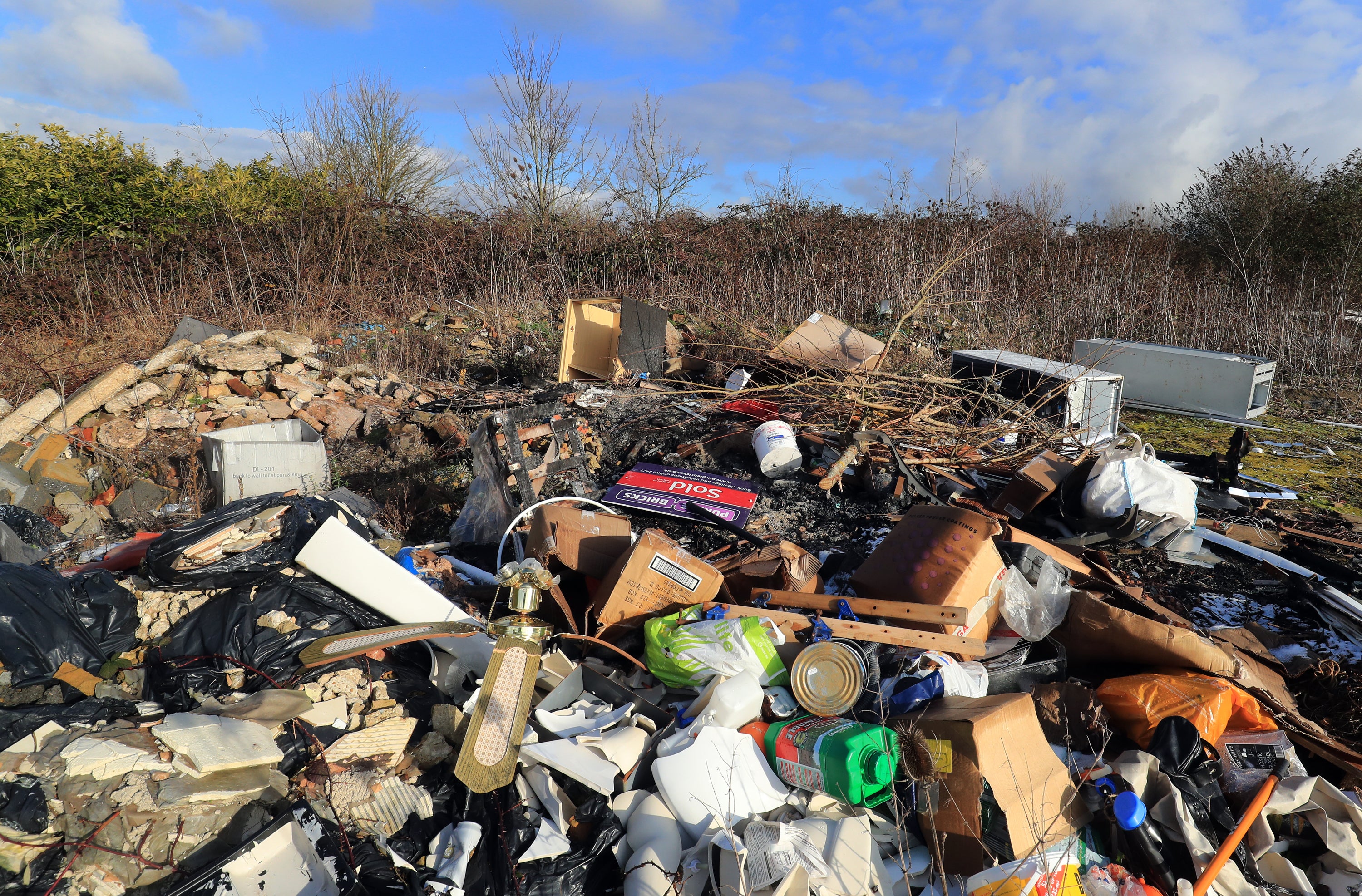Flytipping fines could more than double under new plans
The Scottish Government is consulting on increasing fines to at least £500.

Your support helps us to tell the story
From reproductive rights to climate change to Big Tech, The Independent is on the ground when the story is developing. Whether it's investigating the financials of Elon Musk's pro-Trump PAC or producing our latest documentary, 'The A Word', which shines a light on the American women fighting for reproductive rights, we know how important it is to parse out the facts from the messaging.
At such a critical moment in US history, we need reporters on the ground. Your donation allows us to keep sending journalists to speak to both sides of the story.
The Independent is trusted by Americans across the entire political spectrum. And unlike many other quality news outlets, we choose not to lock Americans out of our reporting and analysis with paywalls. We believe quality journalism should be available to everyone, paid for by those who can afford it.
Your support makes all the difference.Flytipping fines could be more than doubled to £500, with Scottish Government plans to tackle concerns that the coronavirus pandemic has “exacerbated” the problem.
Current fines are £200, but the Government is consulting on raising this to the current legal maximum of £500.
The proposed change is part of a consultation on a new national litter and flytipping strategy which began on Monday.
The consultation also asks if fines should be raised beyond this cap.
We want a Scotland that is free of the blight of litter and flytipping
The consultation paper says the Covid-19 pandemic has “posed a number of new challenges in regards to litter and flytipping”, adding there are “concerns that many of these existing issues had been exacerbated by the pandemic”.
A national campaign to change behaviour, new research on why people litter and more, better use of data to find and target litter and flytipping hotspots, are also proposed.
Further plans include setting up a national flytipping forum.
Launching the consultation, circular economy minister Lorna Slater said: “We want a Scotland that is free of the blight of litter and flytipping.
“That’s why we’re asking for views on a bold set of measures that could help make our streets, parks and public spaces free of rubbish.
“Litter and flytipping are not just a blight on local communities, they also cost millions of pounds every year in clean-up costs. We need to send a clear message that this behaviour will not be tolerated.
“We also need to understand why anti-litter measures are still not reaching some people. To address that, we are proposing not just a one-off campaign, but a sustained push, backed by new research into why people litter.
“We also want to make better use of data to clamp down on illegal dumping. By understanding more about where and when flytipping takes place, we can be more effective in targeting interventions to stop it.”
Terry A’Hearn, Scottish Environment Protection Agency (Sepa) chief executive said information from the consultation could lead to better sharing of flytipping data between Sepa and other agencies, “helping us manage our responses better”.
He added: “Fly-tipping is not only immoral, it is illegal and waste crime poses a risk not only to human health and the environment, but also to urban and rural businesses, and communities.
“Waste dumped illegally in laybys, rural locations or holes in the ground, instead of being disposed of in the correct manner, means criminals are avoiding having to pay the costs a legal operator has to pay.”
The consultation runs until March 31 2022.